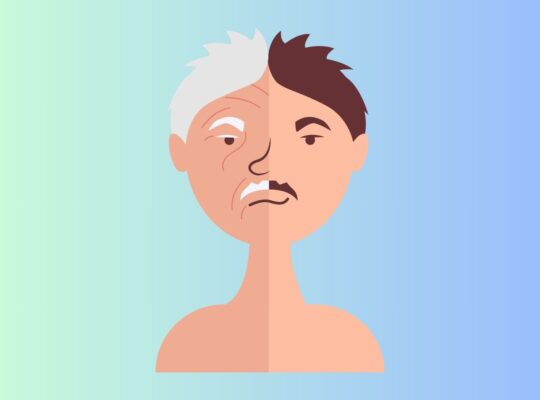When Covid-19 eventually made its way over to America in early 2020, nobody could anticipate just how much life would change as we knew it. Since the first American case was diagnosed a few months ago, a good portion of the country has been put on “lockdown.”
Americans are now forced to keep their distance from one another, stay home from school and work, and adapt their lifestyles to new rules and legislations. Yet, even those who haven’t been directly impacted by the coronavirus are feeling the mental and emotional strain.
During a pandemic like this one, it’s completely normal to experience loss and grief, even if you haven’t been personally affected. The grief involved in such a pandemic is multi-faceted, which is why we’re going to go over the different types of grief and how to deal with each.
How Humans Grieve
Elisabeth Kübler-Ross was a psychiatrist that focused heavily on near-death and the process of dying in humans. In her 1969 book, On Death and Dying, she revealed what we now refer to as the “Five Stages of Grief.”
It’s important to note that you won’t necessarily experience each of the five stages in the order they’re listed. Each stage might last a different period of time and there’s actually no guarantee that you’ll even experience all of them when grieving.
Stage 1: Denial
As the first stage of grief, this is likely where you’ll find yourself saying, “This can’t be happening.” When you’re completely overwhelmed by intense emotions, the shock of an event can immediately send you into a state of denial.
During this stage, you might feel as if life no longer has a genuine purpose. You might ask yourself whether there’s even a point in continuing at all. Part of you might even think that there has to be a mistake.
In terms of a pandemic, you might try to convince yourself that the media has overplayed the severity or has been reporting incorrect pieces of information. You might be convinced that the virus isn’t real or as bad as it sounds, and things will return to normal any day now.
Stage 2: Anger
Once you begin to acknowledge what actually occurred, you’ll begin to shift more toward anger. This stage of grief is much more emotionally intense and might cause you to develop anger toward the “source” of the event, those around you, or even your physical environment.
Essentially, you’re just on the hunt for someone else to blame for what’s happening. When it comes to a pandemic, there are plenty of different directions your anger might go in.
These include….
- Anger at those not practicing social distancing (assisting with the spread)
- Anger at the government for not doing enough to stop the spread
- Anger at the lack of availability of testing, prevention supplies, and resources
- Anger at doctors and nurses alerting you of a positive test result
- Anger that you can no longer go about your daily life normally
- Anger about missing out on major life events
Stage 3: Bargaining
The bargaining stage is where you might experience intense feelings of regret. You might catch yourself starting sentences with “if only,” insinuating that there was something more that you or somebody else could’ve done to prevent it from happening in the first place.
This stage involves a lot of focus on the past. You might wonder what you could have done differently in the past to keep this from happening or attempt to bargain with God to make some sort of deal to fix it all.
In reference to the pandemic, bargaining can show up in a lot of ways. You might focus on whether the spread could’ve been slowed sooner, the events you missed out on could have been saved, or even if you had any fault in the spread of the pandemic.
Stage 4: Depression
The depression stage tends to last the longest and is usually the most emotionally draining stage of grief. During this stage, you typically begin to acknowledge that what’s happening is actually real and start to feel a profound sadness and guilt.
You might begin to distance yourself from others emotionally and lose interest in your favorite activities and hobbies. You no longer enjoy socializing with others and you just want to handle your emotions and thoughts on your own.
In the case of a pandemic, it’s really common to feel a sort of depression when you realize how widespread the illness is and how many people are suffering. But, it’s also not uncommon to feel depressed as a result of what’s considered the “new normal,” or social isolation.
Stage 5: Acceptance
This is the final stage of grief, but not all people will reach this stage. Reaching this stage doesn’t necessarily mean that you’re okay with what happened, but that you’ve accepted that it happened and are trying to move on.
At this point, you’re working to adapt to the new change in your life. You begin to admit that things are no longer the way that they once were and that you have to adapt your lifestyle because of that.
Even though the pandemic is still ongoing, that doesn’t mean acceptance cannot be reached. Acceptance, in this case, might be understanding that you have to stick to this new normal for a little while more and that things will eventually return to normal soon.
The Losses Felt During The Pandemic
Loss of Freedom
Living in a nation under lockdown, your sense of freedom is practically non-existent. Stay at home orders are forcing many to stay home. It seems as if there are new rules and regulations for everything. Stores have begun limiting how many people can be inside at a time and your normal Saturday morning grocery store visit is suddenly a mad dash to quickly run in and run out with only the necessities. You can no longer just bring your kids to the local playground when they become a little too energetic.
There’s no more church on Sundays. There’s no more catching up with friends over a few drinks at the local family-owned bar. No more dining out with family, friends or even by yourself. Basically, any freedom you once took for granted suddenly disappeared overnight.
You know the limited freedom will ultimately curtail the spread of the virus, but it’s also wearing away at your individuality and your mood. Sometimes, it feels as if you’re just going through motions of your new life and every single day seems the same.
Coping Tips
Though you definitely shouldn’t violate quarantine and lockdown orders during a pandemic, there are some ways that you can deal with the grief associated with your loss of freedom. Here are some of the best methods in this scenario.
- Figure out how to incorporate your old hobbies into your new lifestyle. Even though you can’t be with your friends, head to the store, or go outdoors for any length of time, that doesn’t mean that your old hobbies are dead and gone. From your own home, you can personalize equipment, watch videos to learn new things about your hobby, or set goals related to your hobby for when the pandemic is finally over.
- Find new hobbies. Whether you love hiking, fishing, or skiing, there’s not much you can do right now to get outside and engage in your hobbies as normal. What you can do is find new hobbies. Learn some arts and crafts (using items around the home), practice singing, whip out that old rusty six-string, or try writing poetry.
- Make a gratitude list. Right now, you’re probably sitting around thinking about all the things that you’re missing out on. With a gratitude list, you can write down things that you’re grateful for and focus on what you do have. It might make you shift your focus more toward the positives and look forward to the future.
- Make and share memes. Nothing is more cathartic than laughing at your problems. These days there are memes for everything, and the coronavirus memes are particularly good. If you don’t believe me, do a quick Google search or browse reddit. You’ll be laughing along with your friends in no time.
- Dress up nice. Dressing up nice has positive effects on your mental health. It’s a way of telling yourself that you deserve to take extra time to look nice, even if you have nowhere to go. So, dress up and strut around your house. Do a fashion show for your dog. Give it a try!
- Commiserate.If you’re having a bad day, you are not alone. Be open with your friends and schedule a time to commiserate. Cry to each other about how stir crazy you’re going, yell about how much you miss your favorite restaurant, and know that you are not alone.
- Start that project you never had time for. We all have projects on the back burner. Maybe we’ve always wanted to learn to code, write a book, paint the garage or start a business. Now is the perfect time! With nowhere to go and no commute to work, you have a lot of extra time to focus on these dreams. Even if you realize they aren’t for you, you will come out of quarantine better off having given these projects a real shot.
- Start a quarantine vlog.If you’ve always wanted a YouTube channel, now is the time to make that dream happen! Bust out a camera and film the ways in which you are making quarantine work for you. This may also inspire you to try new and exciting things you wouldn’t have otherwise. If you won’t do it for you, do it for the views!
- Create a new routine. Even if your old routine worked like a charm, you’ll need to create a new one. Many aspects of our old lives are no longer possible, but we have to press on. Routine is important to us, so we need to try and keep one up no matter what. So, if you used to start your day with a workout and Starbucks, do an at-home workout and have coffee. If you like to go to a bar on the weekend, make a video chat with all your friends and drink with them. Be creative!
- When all seems lost, focus on the light at the end of the tunnel. This crisis will end. Shelter in place orders will be lifted. Businesses will reopen. It’s a fact that this is temporary. One of the parameters for reopening being followed by governors in certain states is when the peak of the virus begins a downward trend, you can look up solid statistics on this type of data at [ref.]. There is a light at the end of the tunnel. This is temporary. Don’t forget that!
Loss of People
Each day, more and more Americans are being diagnosed with the coronavirus and many are losing their battle. Even more tragic is the fact that wakes and funerals are essentially on hold until the pandemic is over, which prevents loved ones from saying their final goodbyes.
Yet, the loss of people can also be in reference to the lack of socialization that you’re permitted to partake in. Rather than hanging out with friends, going to parties and gatherings, and just encountering others at the supermarket, you’re now alone.
It sometimes feels like you’re in pure isolation mode and that you’re just trapped with yourself. All you have left is your pets and those that live in your household, but even that doesn’t feel like enough sometimes. This can be worse for those who live alone.
You’re craving human interaction, but you know that it’s best to keep your distance until the pandemic is no longer around. You never realized just how much you valued face-to-face human interaction until it was gone.
Coping Tips
There’s nothing you can do right now to interact with people face-to-face. Yet, there are some things that you can do to minimize the sadness and loneliness you’re feeling without others by your side. Here’s what you can do.
- Grieve.If someone you cared for has died begin the grieving process. Don’t deny your feelings, cry, journal and create a support system.
- Work on maintaining your relationships. Just because you can’t see those you care about face-to-face, that doesn’t mean you can’t still reach out to them. A simple phone call, text, email, or video chat will do wonders when it comes to improving your mood and making you feel less lonely.
- Tell people how you feel about them. During tragic losses and events, you suddenly gain an understanding of how short life really might be. So, make an effort to reach out to those you care about and remind them of just how much you care about them and how important they are to you.
- Play pretend. Millions of people around the globe are having a blast pretending to do the things they used to do. They’ll have club nights with friends via Zoom, they’ll order takeout and pretend like they are at a restaurant, there are even some people who remake classic works of art with everyday objects! There are no wrong answers. Channel your creative side and play act what you wish you could.
Loss of Control
There’s a sense of comfort knowing you have some control in your own life. You’re responsible for your own successes, your own failures, and ultimately what happens in your own little world around you.
Yet, in the case of a pandemic, nothing is in your control the way it was. You have somebody else telling you when you’re allowed to leave the house, how much distance you must leave between you and the person next to you, and which stores you’re allowed to go to and when.
Plus, you have no control over the state of the pandemic overall. People around you are suffering from an illness and there’s absolutely nothing you can do about it. You have to learn to be okay with waiting it out and leaving it up to the powers that be.
In a way, you feel hopeless and rather powerless. You feel as if you’re the one that’s supposed to be the protector of your friends and family, yet that’s completely out of your control during such trying times.
Coping Tips
Even though you can’t stop the pandemic from spreading other than through social distancing and practicing good hygiene, there are a few things that can help you through the process of grieving your newfound lack of control. Here’s what you might want to do.
- Focus on what you can control. The truth is the outside world, the pandemic, the doctors, the politicians and restrictions are all beyond your control. The only things you can control is your attitude, mindset and yourself. Focus on those today. There is always a bright side to everything, consider all the good things about being stuck at home, for example you have time to do all the things that you normally can’t because you are at work. Consider this as a gift and how you can make the best out of it and your newfound attitude will see you through.
- Help those who need it. In such trying times, it might make you feel more in control and better about yourself by giving back to your community. You might want to think about donating blood, offering to deliver groceries to your elderly neighbors, or donate masks and medical gear to local hospitals.
- Learn to let go. It might be easy to say, “just let it go,” but it’s really all you can do when things are out of your control. Other than minor things you can do to help prevent the virus from spreading, the best way to rid yourself of the grief, anxiety, and stress is by realizing it’s completely out of your own hands.
- Unplug from toxic news sources. Much of the media reporting can be scary. When people are scared, they share articles and become addicted to refreshing news feeds. Don’t fall into this trap. If you find that the news or social media are hurting your mental health, unplug. Get that mess off your phone. In reality, there is little you can do about the outside world, the only thing you can control is yourself.
- Understand this isn’t permanent. Even though we don’t know what it’ll look like when the pandemic is finally over, your lack of control in your own life won’t be forever. It’s best to remind yourself that this is only temporary and will eventually change.
Loss of Work
With only “essential” businesses being allowed to stay open and many businesses closing down indefinitely, many Americans are suddenly without work and a paycheck. Unemployment rates are skyrocketing, and many are left to wonder how they’ll support their families.
Financial struggles are stressful, to begin with, but having no other employment options is even more devastating. Rather than sending applications to new companies, you’re stuck at home waiting for new opportunities to open up.
If you do still have a job, you might be forced to work from home and have your hours and your pay cut substantially. Suddenly, the comfortable life you once live no longer exists and you’re desperately waiting for things to recover.
You’re wondering whether you have enough in savings to pay the mortgage, put food on the table, and pay the bills. It’s very common to feel grief when you lose a job, especially if you have a family that depends on you.
Coping Tips
A lot of the grief associated with losing work comes down to waiting it out and having hope that things will repair themselves quite quickly. But here are some other things that can help you through the grieving process.
- Remember that this is not your fault. Even though you’re responsible for supporting your family financially, your job loss had nothing to do with your job performance. This was completely out of your control and doesn’t make you a failure.
- Spend time with your family. It’s terrible that you lost your job, but now’s the time to lean on your loved ones for support. Rather than isolating yourself and focusing your energy on sadness, enjoy the extra time you currently have with your loved ones.
- Realize that there are people to help. It might be against everything you believe in, but there are organizations and people out there that are willing to help those who have been impacted by sudden job loss. It’s okay to lean on others in your time of need.
- Crowd funding. Many families have created a GoFundMe page, where people donate to their cause. This is not appropriate for everyone but visit the site and learn if possibly you can benefit from such a service.
- Drop the shame. Don’t be ashamed to ask for help from those who have more than you.
Loss of the World We Know
Everybody in the world is getting used to what’s being called the “new normal.” Essentially, the entire world is forced to adapt to the new changes that have been implemented in order to keep the pandemic to a minimum.
It’s safe to say that the world will never be the way it was before the pandemic struck. There will likely be new rules and legislations, different methods of providing healthcare, and even guidelines for how we handle new illnesses.
Right now, the entire world is basically at a standstill. Your travel is limited. Businesses worldwide have shut their doors. You can’t do the things you once did without a second thought. And, there’s a lingering sense of fear.
But, it’s important to remember that this is temporary. These measures are taking place to protect public health and also to prevent a huge overload on the health care system.
Coping Tips
There’s absolutely nothing you can do right now to change how the world is viewed and how the world functions as a whole in the future. What you can do is learn to be accepting of new changes. Here’s how you can do that.
- Make a “this can be worse list.” One thing that positive thinkers and optimists do is they always consider the “this can be worse” scenario. So, for example, “we can be at a full blown war,” “I can have cancer,” “I could be homeless,” “there could be no scientists working on a cure or a vaccine,” “there could be no caring officials working on ways to keep us safe” etc.… Consider how much worse off the people who have died from Covid-19 are not to mention the families they left behind. You are alive! These thought processes help you see that things are not as bad as they seem, and could be much worse.
- Choose resilience.Resilience is based on the fact that previous struggles serve to help you in current ones. There are thousands of people who have suffered in far worse ways than a temporary change in lifestyle, and so for them it is easy to take all this with inner strength and resilience, knowing that since they overcame so many struggles, they can overcome anything. For example, people who have been victims of crimes, those who suffered child abuse, divorce struggles, breakups, living in their car at some point, the list goes on and on. Consider your past struggles, did you survive? What can you learn from those struggles? How can they make you stronger?
- Reminisce. You might be too depressed to think back to the past right now but give it a go. Think about the most traumatic things that have happened in your life or in the world that you thought you’d never get through. Things were different before and after the events, but you survived and became a better person because of it.
- Put your life into perspective. Now, it’s completely normal to feel overwhelmed and stressed about minor conveniences in your life. But, situations like these really make you put things into perspective. If anything, this might help you to realize that those minor problems in your life aren’t all that big of a deal at all.
- Be open to change. You like your life and the world the way it is. That’s understandable. But you also know that change is a part of life. Even though you don’t know what changes are up ahead, you need to learn to be okay with them happening and take them as they come. Change is also the perfect time to build your inner strength, resilience, perseverance and positive thinking skills. Aren’t those great gifts, the silver linings?
Loss of Plans
Now that nearly every event for the next few months has been canceled, you’re basically stuck at home without any long-term plans. Perhaps you had travel plans, To make matters worse, you don’t know when the events you were looking forward to will finally be rescheduled.
Starting with the basics, you no longer have school or work to look forward to. Even though your coworkers and some of your classmates irked you and your schedule was hectic, your school or workplace has been shut down indefinitely.
Any special events that were scheduled are now called off. There are no weddings or parties. There are no small gatherings with family and friends. And, there are absolutely no wakes or memorials to celebrate the lives of those lost.
Big events like graduations and proms are no longer a part of the American education system this year. Vacations have been canceled. It just sometimes seems like everything you were looking forward to is gone and there’s nothing left to keep you going.
Coping Tips
Even though you have to follow the new rules if you don’t want the virus to continue to spread, it’s totally normal to grieve the loss of the things you were looking forward to the most. Here are some things you can do to help you traverse this grief.
- Make long-term goals. Even though you might not know when you’ll actually be able to have your wedding or go on your first family vacation, that doesn’t mean you can’t continue to have goals. Make some long-term goals of places you want to visit or things you want to do when the pandemic comes to an end.
- Remove the timeline. You wanted to fulfill your plans when they were scheduled, but that’s no longer possible as a result of the shutdown. So, look forward to the event being rescheduled sometime in the near future and don’t put a time limit on when they should happen.
- Make new plans for now. So, you can’t go to Disney World, but that doesn’t mean you can’t do anything fun around the house. Have a family game night, play some video games with your kids, or exercise as a family.
- Consider the most important bottom line. As previously mentioned, YOU ARE ALIVE and WELL, is there anything more important than that.
Help Those Who Are Really Suffering
You might be experiencing a ton of grief as a result of your new lifestyle changes, but others are suffering as well in many different ways. It shows that you’re an extremely empathetic person to grieve the loss and trauma that others are experiencing.
There are some people that have lost their jobs and can no longer afford to put food on the table. Others have had to cancel their wedding and other major events that they were looking forward to. Those who have had loved ones pass away were never able to say goodbye at a funeral.
Some are trapped in a hospital and aren’t allowed to see their family members face-to-face. Doctors and nurses are forced to spend long hours away from their families to help those who are desperately fighting for their lives.
It’s even worse when you realize that there’s nothing that you can do about it other than offer a helping hand to those who desperately need it in these harrowing times. It’s important to be thankful for the things that you do still have.
The best thing you can do when grieving the suffering of other people is showing others that you care about them and support them. So, here are some things you might want to think about doing to help those who you’re grieving for.
- Offer your time. Money is increasingly tight as the pandemic continues. Yet, your time might be even more valuable to those who are in need. So, maybe cut your neighbor’s lawn for free or offer to make food deliveries to those who can’t leave the house because of a compromised immune system.
- Give what you can. Some people are more fortunate than others. If you have a little extra cash to help others out, that can really make you feel better and support others at the same time. But you can also donate blood, masks, or other supplies.
- Be thankful. Grieving the suffering of others means that you recognize that you’re not in the same situation, which means you’re in a somewhat better place. Remember to be thankful for your health, the luxuries you’re afforded in life (even in lockdown), and most importantly, your family.
Final Thoughts
Hundreds of thousands of Americans nationwide have been directly impacted by the coronavirus. Yet, everybody is handling the spread of the pandemic and the new rules and regulations quite differently.
Grief is common in situations like these, as everyone is feeling some sort of loss during these harrowing times. You either know somebody who’s been affected, are forced to give up school and work to properly social distance yourself or feel as if life as you know it is over.
The most important thing you can do to handle your grief is to not fight the grief and allow the grief cycle to run its course. Look for support from those closest to you and do what you can to give back to others who are struggling around you.
Stay well and take care.







